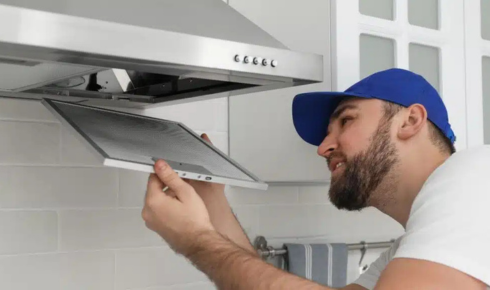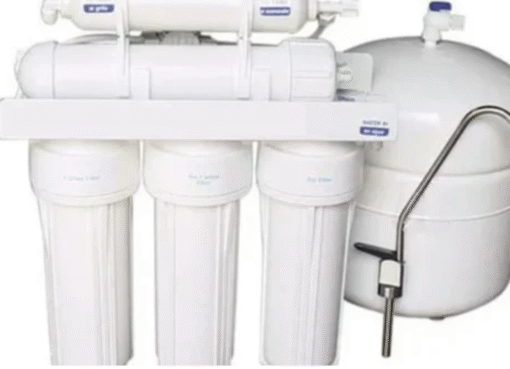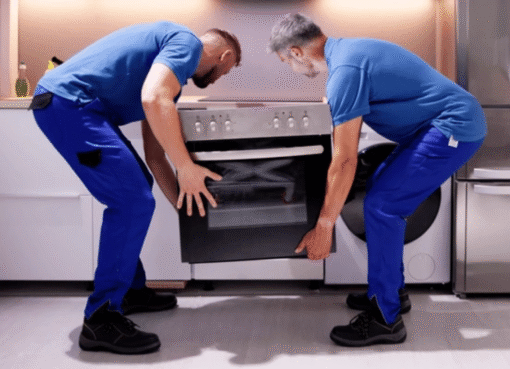When Your Trash Compactor Quits: A Practical Guide to Getting It Fixed Without the Stress

If you’ve ever had a kitchen appliance stop working in the middle of your daily routine, you know how inconvenient it can feel. The trash compactor—one of those unsung heroes of modern kitchens—often doesn’t get much attention until it decides to take a day off. And when it does, suddenly you’re back to overflowing garbage bags and unnecessary clutter. Not exactly fun.
I’ve been there, standing in the kitchen, foot pressing the pedal, waiting for that familiar crunch only to hear a sad hum—or worse, silence. It’s frustrating, and sometimes you don’t even know where to start. Do you call someone? Try fixing it yourself? Replace it altogether? Let’s break it down in plain terms, with a few real-world tips to help you make the best decision.
Why Trash Compactors Matter More Than You Think
At first glance, a trash compactor might seem like a luxury. But when it’s working properly, it reduces the volume of household waste, saves you trips to the outdoor bin, and even helps cut down on plastic bag use. In busy households—or if you cook a lot at home—it quietly does its job in the background, keeping your kitchen cleaner and more efficient.
That’s why, when it stops compacting properly, it can throw your whole routine out of balance. Garbage piles up faster, the kitchen smells worse, and suddenly you realize how much you relied on that little machine.
Spotting the Signs Something’s Off
Not every problem requires a repair call. Sometimes, a trash compactor just needs a small adjustment or cleaning. Here are a few signs that it’s moving beyond “minor annoyance” and into “time to take action” territory:
- The drawer won’t open or close smoothly
- You hear grinding, humming, or clicking noises instead of the normal cycle
- The ram (the part that does the crushing) stops midway and won’t reset
- Bad odors persist even after you’ve cleaned it thoroughly
- The compactor doesn’t start at all, despite being plugged in
If you’re noticing one or more of these issues, chances are you’ll need a professional look at it. For folks in Alabama, searching for trash compactor repair AL is often the first step toward finding someone who knows the ins and outs of these machines.
DIY or Call the Pros?
It’s tempting to think you can fix every appliance with a quick YouTube tutorial. And sure, sometimes the fix really is simple—a jammed drawer, a tripped circuit breaker, or even a loose knob. If you’re handy and comfortable with tools, it’s worth checking for obvious blockages or resetting the unit.
But here’s the tricky part: trash compactors have moving parts, belts, gears, and motors that aren’t always user-friendly. If you open it up and find yourself staring at wires and components you don’t recognize, forcing a fix could make the situation worse (and more expensive).
In many cases, calling for a trash compactor repair service saves you both money and time. Professionals not only have the right tools but also carry replacement parts that might be tough to find at your local hardware store.
What to Expect When You Call a Repair Service
One of the most common worries is cost—how much will it set you back? While every company prices differently, most repair services charge a flat service fee for coming out, then add labor and parts if needed. The actual repair might range from a quick belt replacement to something more complex like a motor or switchboard issue.
Here’s what usually happens:
- Initial call – You’ll describe the problem, and they might ask a few questions to narrow it down.
- On-site check – A technician inspects the compactor, runs a few tests, and gives you an estimate.
- Repair or replacement – Depending on the issue, they’ll either fix it right away (if parts are on hand) or order what’s needed.
- Advice for the future – A good technician won’t just fix the problem; they’ll tell you how to prevent it from happening again.
And yes, while it may feel like an inconvenience, it’s often a quicker fix than you think. Most repairs take less than an hour once parts are ready.
Choosing the Right Service Nearby
Now let’s talk about that familiar late-night search—typing trash compactor repair near me into Google when you’re desperate to get things back to normal. That’s a good start, but not all repair companies are equal.
Look for services that:
- Have solid reviews (especially ones mentioning compactor repairs, not just dishwashers or ovens)
- Offer transparent pricing and warranty on repairs
- Are local enough to respond quickly in case of future issues
Another underrated tip: ask your neighbors or community groups online. Sometimes, the best recommendations come from people who’ve already been through the exact same kitchen crisis.
Preventing Future Breakdowns
No appliance lasts forever, but with a little care, you can extend the life of your compactor. A few easy habits make a big difference:
- Don’t overload it – Compactors are tough, but stuffing them to the brim strains the motor.
- Avoid the wrong items – Metal, glass, or large bones can damage the mechanism.
- Keep it clean – Wipe down the inside regularly to prevent buildup and odors.
- Use the right bags – Some units require specific liners that fit correctly and support the load.
It’s a bit like taking care of your car. Small, regular maintenance beats an expensive repair down the road.
When It Might Be Time to Replace Instead of Repair
Sometimes, despite best efforts, repair isn’t the most cost-effective option. If your compactor is over 10–12 years old and needs a major part replaced, you might be better off putting that money toward a new model. Modern units are quieter, more efficient, and often sleeker in design.
That said, don’t rush into replacement without a professional opinion. Many issues look worse than they are and can be fixed relatively cheaply. A reliable technician will give you an honest take on whether it’s worth repairing or if replacement makes more sense.
Wrapping It All Up
Living without a working trash compactor can feel like going back in time—suddenly every little kitchen mess turns into a bigger chore. The good news is that most problems are fixable, and you don’t have to spend weeks dealing with piled-up garbage bags.
Whether you try a few DIY checks first or go straight to scheduling a trash compactor repair service, the important part is not ignoring the problem. Appliances rarely heal themselves. Acting early saves money, keeps your kitchen running smoothly, and brings back that satisfying “crunch” of a working compactor.
So next time you press the pedal and nothing happens, don’t panic. Take a breath, weigh your options, and remember—help is closer than you think.
Leave a Reply
You must be logged in to post a comment.




Leave a Comment